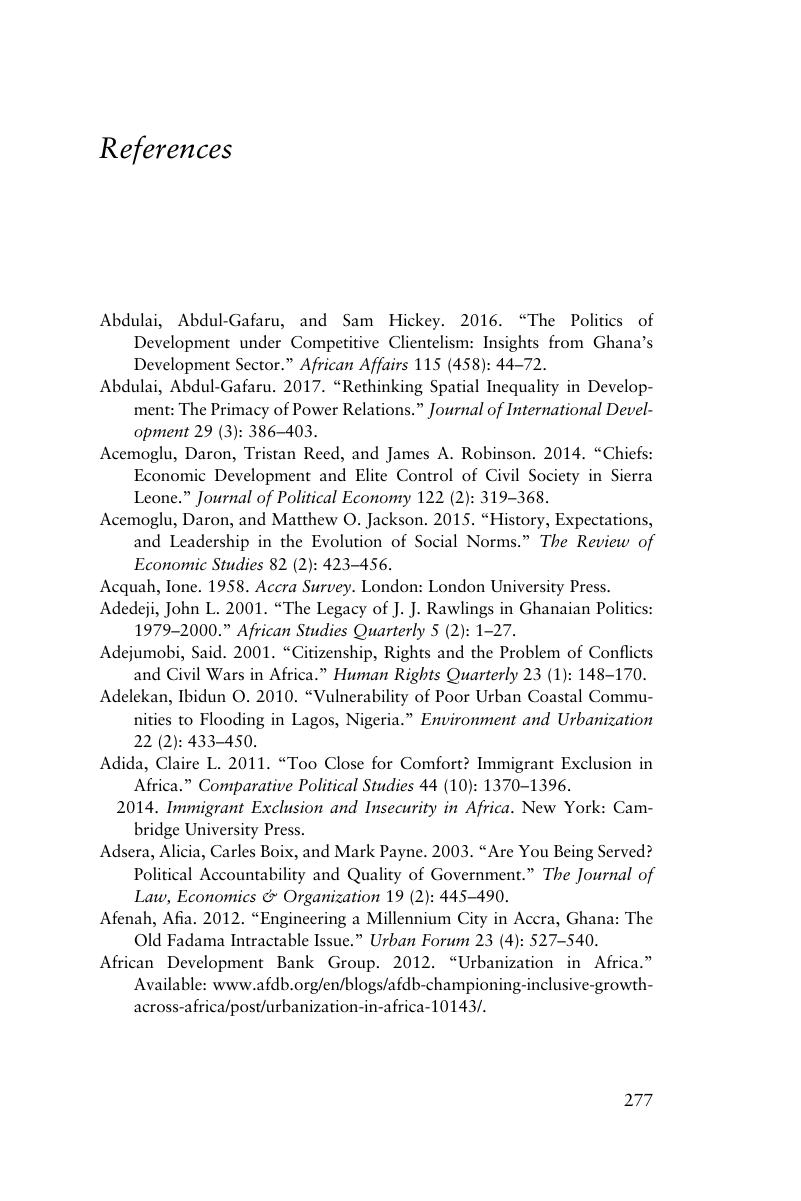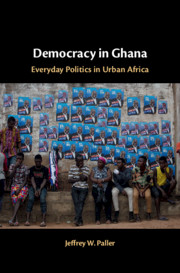Book contents
References
Published online by Cambridge University Press: 18 February 2019
Summary

- Type
- Chapter
- Information
- Democracy in GhanaEveryday Politics in Urban Africa, pp. 277 - 309Publisher: Cambridge University PressPrint publication year: 2019



